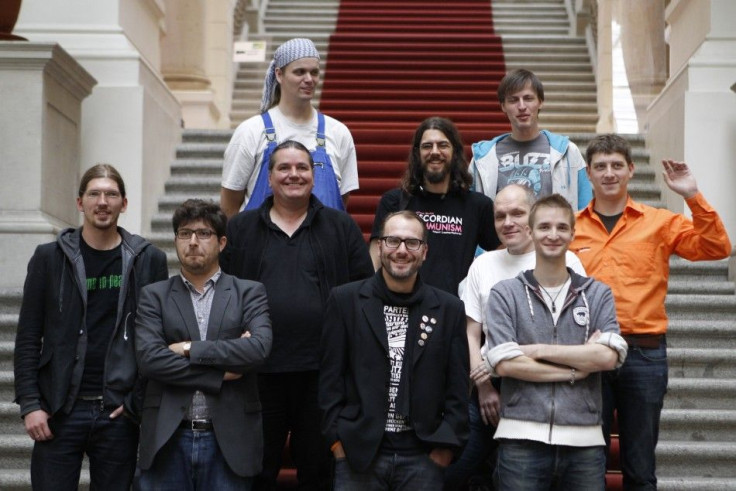What is the 'Pirate Party'?

After winning almost nine percent of the vote in Berlin on Sunday, delegates from the Pirate Party won 15 seats in Germany's State Parliament.
It was the first time the upstart party has won an election. In fact, it was the first time they had ever run in an election. Nevertheless, the group managed to wrangle the fifth most votes of all parties, enough to effectively kick the Free Democrats -- a pro-business, pro-Merkel institution -- out of parliament in Berlin.
So who, or what, is the Pirate Party?
The German daily Der Spiegel described the party as kids, literally, at a party; they celebrated their win with sweaty night club dancing, marijuana and booze. The picture painted of the Pirate Party was one of reckless -- but ambitious -- amateurs who probably didn't know what they had just gotten themselves into.
But to depict the group more accurately, the 10 party members, who spoke to reporters at State Parliament in Berlin on Monday, looked more like they belonged in a college dining hall rather than City Hall. Wearing mostly clothes with hoods, or in one case a bandana, the Pirate Party delegates -- who will soon be debating the future of the German capital -- are not typical politicians, even among the far left.
The group is young, not only as an organization, but also in terms of median age. Their top political concerns are primarily Internet freedoms, a fact which philosophically ties them to hacker collectives such as Anonymous and LulzSec, the vengeful online groups that attack corporations and Web sites who challenge Internet ethics.
The Pirate Party also supports political transparency -- a topic that has been more present than ever since WikiLeaks.
The most important thing to realize about the Pirate Party is that it's not a prank. The party is an international organization -- it wouldn't be inappropriate to call it a movement. The party is at its strongest in Europe, where it is officially recognized by 17 national governments. The group is also active in a number of other countries, including the United States, Russia, Australia, Morocco and most of South America. They have achieved all of this in a little more than four years, which was when the party was founded.
Additionally, after the Tunisian uprising earlier this year, a member of the Parti Pirate Tunisien, named Slim Amamou, was appointed Secretary of State for Sport and Youth, although he has since resigned.
The umbrella organization Pirate Parties International holds annual conferences (so far, there have been two, one in 2010 and one in 2011) and publishes the minutes online, as one would expect. There are deputies and chairpersons and agendas and newsletters. Despite their greenness, the party seems to be quickly figuring things out as they go.
Time will tell if the Pirate Party has the staying power to become the global political force it wants to be. But, if anything, the German elections are a sign that in this world of growing social unrest, things are not politics as usual.
© Copyright IBTimes 2024. All rights reserved.




















